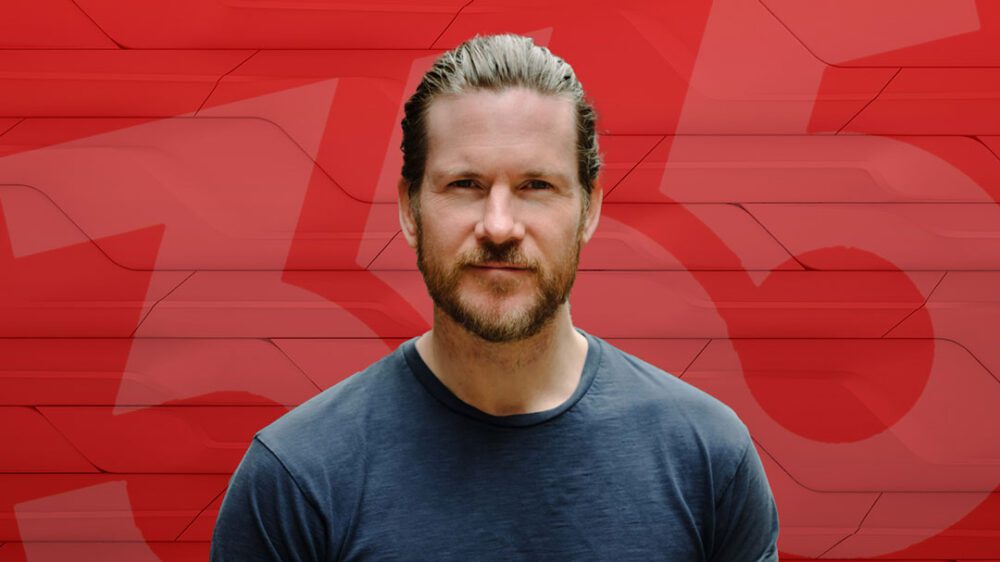Throughout our life we’re encouraged to look upwards for inspiration. To learn from our elders, from those who have been around the block, people who have lived experience on which we can draw for a short cut.
And in general terms that’s not a bad rule to live by, though I wonder if that does tend to stifle the mavericks out there. However, when it comes to growing a business I firmly believe that looking up is not always the way to go. Instead, if businesses existed on a ladder with the oldest at the top and the newest at the bottom, many CMOs could do with looking back down the rungs.

Britain’s retail space is famed for its heritage brands, those long-established high street stalwarts that have been around longer than most of us can remember. But pushing them out of the way with impressive force are the up-and-coming young brands who are carving out a space in the D2C world, working to small budgets and agile processes to hit the mark with digital-savvy consumers.
During a career which has provided me with front-line experience developing business, marketing and media strategy for an array of heritage brands, as well as being CMO for a fast scaling tech start-up, to co-founding Wake The Bear, a marketing communications agency purposely designed to partner businesses, big & small, going through critical periods of change it still never fails to amaze me how spectacularly big brand CMOs are missing a trick if they’re not watching and learning from the start-up and scale-up community.
🏆
The 2024 Creative Retail Awards are open for entries.
The Creative Retail Awards are much more than a mere accolade; they represent the pinnacle of achievement in the retail industry. Garnering a nomination or winning one of these awards is a testament to innovation, excellence, and leadership.
www.creativeretailawards.com
Lower levels of influence and reputation in their sector means these brands have to be one step ahead of the game at all times, anticipating opportunities in the market or among audiences. Smaller budgets mean they have to make money go further, which means clever planning and flexible buying options. And they have to take some calculated risks, which makes for an altogether more refreshing mindset.
In short, there is so much that Britain’s long-standing retailers can learn from today’s more agile newcomers.
Always be testing new audiences.
A start-up normally identifies and zooms into a ‘super-user’ at launch, that is the die-hard, often niche customers who really buy into the product or service and the brand. However that same start-up will normally find its scale-up growth by expanding beyond this established super-user base into a far larger pool of people who may have some of the traits of the superuser, but are certainly not as committed to their offering. The company has to prove it’s relevant to this new audience, leveraging insight from their super-users but broadening their appeal.
This sense of going ‘mass market’ can be reversed for heritage brands. If they think of their current core customer base – likely quite large – as their super users, they should continually explore new audiences in a proactive way. This should give them a pipeline into new growth areas when their core base starts to decline, perhaps due to changing trends, wants and needs, or other economic or social factors.
Conversely, having to reactively pivot and find relevance with a new audience when you’re already at scale is not only difficult, but likely going to be damn expensive.
Be constantly ready and nimble for supply chain issues.
We’ve seen the world throw quite a few curveballs over the past few years, and where it might have only been a plucky start-up that couldn’t supply a product due to supply chain issues caused by a lack of infrastructure, the scale of global disruption means arguably no business is impervious to it.
If heritage brands think their supply tap could be turned off, or at least tightened at any time, they could take the start-up approach of being more nimble in their actions, especially around media and marketing. You don’t want your huge pre-booked TV campaign airing if your distribution centres don’t have the units to supply the demand. No products after purchase equals angry customers and lost reputation.
An agency like ours that plans and books all marketing and media in an agile fashion is a significant asset in unpredictable times. Retain the ability to book campaigns in a short term way, with the ability to pause or defer if supply does become an issue.
Don’t assume your historic reputation will attract the best talent
There are so many exciting start-ups and challenger brands in the marketplace, that the safe path of focusing your career towards a big named heritage brand – just because they’re an established household name – isn’t a given any more. The start-ups have had to work hard to attract talent in the past, thanks to being deemed a risky bet. As a result they’ve had to prioritise constantly innovating either in company culture, working flexibility or office locations to add to their appeal.
Heritage brands should think the same. They may have a brand name everyone recognises, but if you’re in a dreary office with minimal company culture and in an out of town business park, you may struggle to get the people you want unless you bring some of that exciting start-up vibe to your recruitment brand. Alternatively may have to pay way over market rates to entice them there – and who’s to say they’ll be happy there once they’re in.
Take the work harder and smarter approach.
Start-ups rarely have the resources they need to meet their ambitions, and they are often entering into categories where they must go up against well-entrenched heritage brands who have a far larger marketing budget. Start-ups therefore need confidence that every pound spent is squeezed and maximised as much as possible.
While a heritage brand has the wiggle room to hire a CMO or to use a large global agency to keep a steady hand on the tiller, for more effective, impactful results, they should consider working with a specialist agency or bringing in an internal team that is not used to large budgets and seemingly endless resources. These will be the people who know the value of every pound spent, and the expectations of what it must deliver for the business. A very different mindset and approach from purely managing and allocating huge budgets.
They will know where and how to find quick wins, when to double down and when to act differently in the market to add a multiplier effect to any activity.
Seek start-up style strategy inspiration
Well established heritage brands are likely to have all manner of ‘strategy’ floating around the business. Different strategies by division, by location, by product line, and legacy strategies that were never fully retired when the last CEO or CMO departed and their replacement brought in something new. Too much undefined or unclear strategy can actually shackle, confuse and detract from the pragmatic guidance the heritage brand needs for growth.
Think about strategy like a start-up. It’s really just about the best allocation of resources to achieve the defined aspirations of the business. Work with an agency who has form in this space, who can run a business strategy sprint bringing key stakeholders together to define and align upon a single strategic framework for the business. A clear and concise framework that then guides all parts of the business to growth.
So while many start-ups may dream of one day dominating our browsing history as their predecessors would once have been featured heavily in our high street visits, it wouldn’t hurt some of the bigger players to now look back down the ladder to see how the new kids on the block are playing their hand. They may learn a thing or two.














